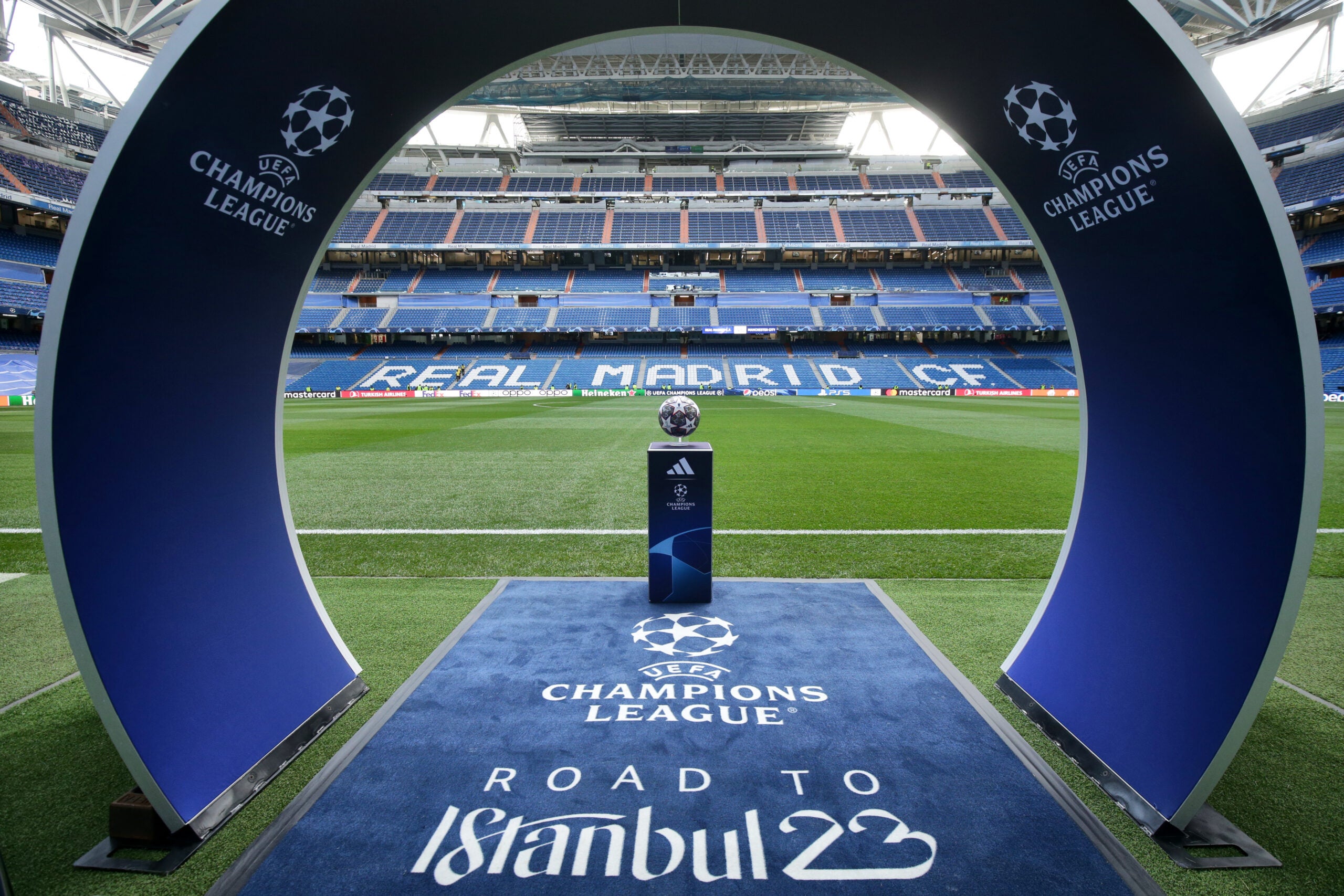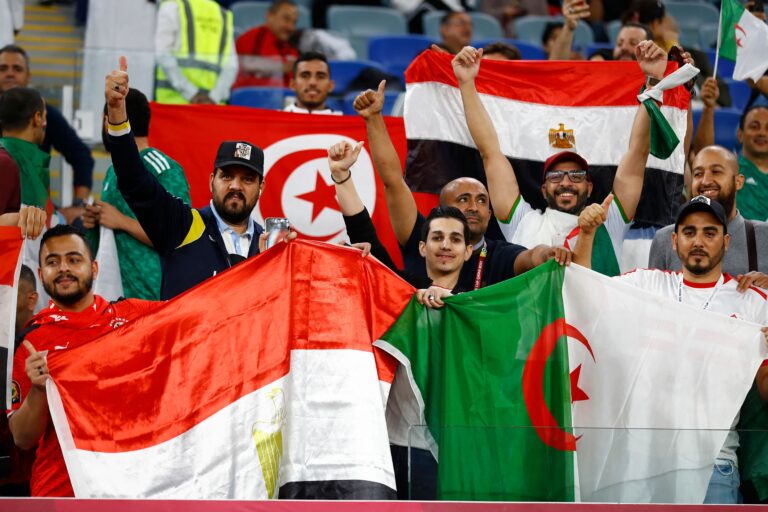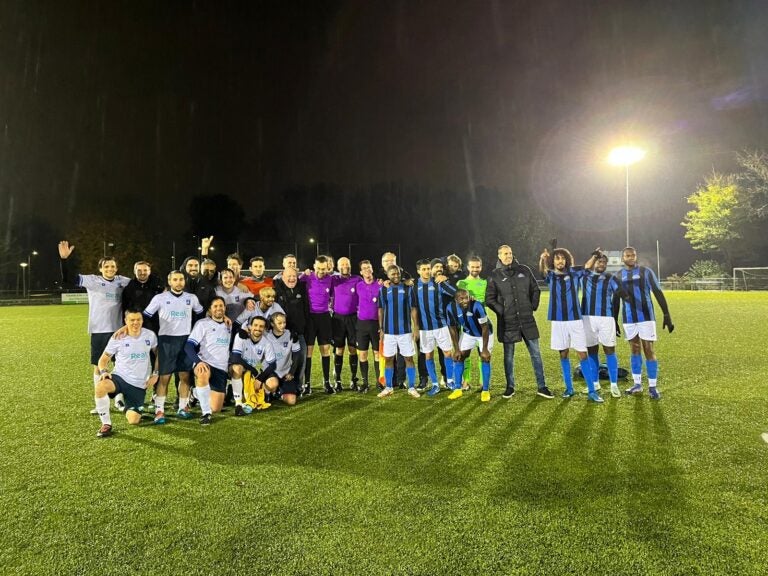Recognition Is the Point: How the UEFA Champions League Became an Arms Race for International Clout
Why this matters
The UEFA Champions League trophy is the top prize in international club soccer, but its value has moved beyond simple pride or prize money for the sportswashing enterprises looking to varnish their troubling reputations.
When the knockout stages of this season’s UEFA Champions League kicked off in mid-February, the 16 teams left standing in the world’s premier club soccer competition included three teams owned by American investors – either by billionaire ownership groups or private equity firms, the latter of which owned minority stakes in several more teams. One club was owned by an energy drinks company, one by the ruling family of Abu Dhabi, another by Qatar’s sovereign wealth fund, one by a movie mogul, one by a billionaire currency speculator, and one by the holdings offshoot of a Chinese retail company.
This might not seem so abhorrent from the perspective of the United States, where teams have owners as a matter of course. But virtually all European clubs – notably excepting RB Leipzig and Paris Saint-Germain, two of those knockout stage teams – began their existences as factory teams or offshoots from social clubs or bands of friends whose hobby got out of hand.
Today, more than half of the round-of-16 teams were not so much professional sports clubs as investments, ego plays, or projects intended to accomplish something beyond soccer. In their latter-day guise, those clubs essentially exist to make famous or to make money or to make a return, refracting the cultural clout of a beloved sporting institution upon their owners. The fans of those clubs abet this process, happily embracing new owners, no matter how problematic, and boosting the whole enterprise with their disposable income. Some soccer clubs now exist primarily to launder the sins of their owners, gladly swimming in shady money.
Those owners no longer seek to win the Champions League (or any trophy) as an achievement in and of itself. Rather, that most elusive of prizes has become a means of accruing other spoils. The big-eared trophy confers a kind of glory that relegates soccer to something beneath itself: a pot of prize money or a multiplier on an investment or the soap that washes away the stains on a reputation.
That’s what is at stake in these ongoing Champions League semifinals. One of the most coveted prizes in sports is up for grabs, yes, but also a ticket to other things that – to some – are worth even more.
***
It seems like the drug lords of 1980s Colombia figured it out first. Pablo Escobar reportedly started funneling his ill-gotten gains to Medellin’s soccer club Atlético Nacional as early as the 1970s, in fact. The rival cartel, headed by the Orejuela brothers, allegedly followed suit and began pumping money into América de Cali. Not to be outdone, Colombia’s other cocaine kingpins adopted teams of their own – “El Mexicano” Gacha supposedly backed Millonarios – setting off a financial arms race and sparking a golden age for Colombian soccer. Until 1985, a Colombian club had made the final of the Copa Libertadores – the South American counterpart to the Champions League – only once. Then, the Orejuelas’ América de Cali made the title game three times in a row, and Escobar’s Atlético Nacional won the whole thing in 1989. So flush was the Colombian game that América de Cali apparently tried to tempt away a young Argentine prodigy, Diego Maradona, who had already committed to signing with FC Barcelona in the Spanish League.
Like many things the narcos did, taking over their favorite clubs seemed less about business than competing with one another, although the soccer clubs did open up handy avenues for laundering money. There were plenty of riches and frills to go around, but to be named the best soccer team in Colombia or all of South America? Only one of them could have that. The narcos dabbled in soccer to measure themselves against one another, to bet on it, to fix bets, to intimidate, and to flex their power.
Related: How Soccer Fans Are Rebelling Against Unchecked Global Capitalism
In Italy around the same time, media magnate Silvio Berlusconi discovered that same power. He bought AC Milan when it teetered on the brink of bankruptcy in 1986, flooded the club with money, then won five Italian titles and three Champions League trophies within the next decade, forming one of the best club teams ever. That same year, French businessman Bernard Tapie bought Olympique Marseille and lifted it to five French League titles and a Champions League title in 1993.
Tapie, an outsized character, seemingly bought the team to massage his ego. Berlusconi, however, had far loftier ambitions. Before long, he parlayed the fame that his soccer team lent him into three separate stints as Italy’s prime minister, sliding ever further into right-wing populism while his personal and political scandals mounted, functioning as a kind of proto-Trump. Berlusconi named his political party Forza Italia for the national team’s rallying cry, which is a little like Steven Cohen going up against the Republicans and the Democrats with a group called “Let’s go, Mets.”
Berlusconi’s cash set off a bidding war for talent in Serie A as well, where family fortunes and international conglomerates backed the bigger clubs. The Agnelli family, owners of Fiat and several other car makers, redoubled their backing of Juventus. The Moratti family and their oil money supported Inter Milan. Parma was bankrolled by the Parmalat dairy giant. Lazio had Cirio, makers of all manner of foods. At the time, throughout the 1980s and ’90s, the Italian league was universally considered the world’s strongest league.
Soccer’s slide into hyper-capitalism had begun. And the thing about slowly abandoning the principles and values that held you together as a club is that, eventually, you can no longer make a moral case for why a certain person or institution shouldn’t get to buy your team.
***
The new European club soccer champion will be one of Real Madrid, Manchester City, AC Milan, or Inter Milan. Real, historically the most successful team in Europe by some distance, is chasing a 15th Champions League title and a ninth in the quarter century. Although still owned and nominally controlled by its member-fans, the club has been ruled by its billionaire construction tycoon, Florentino Pérez, for two decades, off and on. That still makes it the most organic of the four institutions.
Milan fell into the hands of American investors when the Chinese company that bought the club from Berlusconi in 2012 defaulted on its loans. Those American investors then sold the club to other American investors – who, like newish Chelsea co-owner Todd Boehly, who also owns pieces of the National Basketball Association’s Los Angeles Lakers and Major League Baseball’s Los Angeles Dodgers, believe there is a healthy return to be made on their billions in investment if only the club is run smarter.
Inter, meanwhile, was sold the next year, going from the Moratti family to an Indonesian ownership group and then in 2016 to a Chinese group also funded by American backers. The takeover of Inter was part of China’s sprawling plan to exert soft power over the West through the appeal of soccer. In 2016, the Chinese government announced massive investment in the sport, at the direction of soccer-mad President Xi Jinping, with an aim of winning a World Cup by 2050 and, more urgently, facilitating China’s ambitions of holding cultural sway over the world. The Inter ownership is one of the last vestiges of China’s top-down campaign that has since fizzled out.
A clash at the highest level of the game between the Milan clubs feels like a throwback to Serie A’s long-lost glory days. It might even invite premature speculation that the league has made a comeback. (It hasn’t, since most Italian clubs still face massive structural obstacles, lacking their own stadiums or any kind of progressive thinking in Italian soccer leadership.) But that conversation, that romanticism, obscures what is actually a bout between one club controlled by an American investment firm and another by a Chinese holding company majority owner and a Singapore-based private equity firm.
Manchester City is the bellwether for how fundamentally soccer has changed. The royal family of Abu Dhabi bought the club in 2008. In the decade before that, City played in the English third tier. In the five seasons before the club’s sale – which also briefly passed through the former Thai prime minister before his assets were frozen – City placed 16th, eighth, 15th, 14th, and ninth in the Premier League, respectively. To date, Abu Dhabi has spent some $2 billion on players. But the royal family's approach has been far more far-reaching and sophisticated than simple spending.
Related: The Soccer World Didn’t Need a European Super League – It Already Has One
City began by poaching some of the sport’s top executives, who in turn lured some of the best front-office staffers and coaches. They put a plan in place to hire Pep Guardiola, his generation’s leading manager, which took about four years to finally complete. They invested in infrastructure and brought in not only the best senior players but also elite youth talent. And then the club set about building a conglomerate of a dozen affiliated soccer teams on five continents, the City Football Group, with 11 of them acting as feeder teams to Manchester City. Within four years, the monsoon of cash remade the club into the top-tier champion for the first time since 1968. That kicked off a run of six titles in 11 seasons and three runner-up finishes. Presently, City seems headed for a fifth English title in six years. Yet a Champions League trophy, the club’s stated objective, the true measure of continent-spanning dominance, has been elusive. “To get the recognition of everyone in the world outside, we need to conquer Europe,” Guardiola said. Recognition is the point, after all.
City’s lost the Champions League final in 2021 to Chelsea, then still the plaything of a Russian oligarch before his own assets were frozen and the club was sold to American ownership. Including razor-thin semifinals losses to Real Madrid in 2016 and 2022, the culmination of City’s entire, cash-soaked enterprise remains vexingly out of reach. For now.
That Real Madrid, the undisputed kings of the continent since the 1950s, should stand between City and a second final in three years feels only fitting. For all of its money, for the pedigree of its coach and its players and anybody else the club has poached from its rivals, City has never figured out how to match up with the effortlessly regal Real Madrid, the club that is everything City aspires to be. This struggle has offered some measure of consolation to those who detest what the soccer industry has turned into: a bidding war among the world’s wealthiest.
Nevertheless, City’s playbook is being duplicated elsewhere. The Qatari government attempted it with Paris Saint-Germain – which has also spent well north of a billion dollars on players over the course of a decade, including leading superstars Lionel Messi, Kylian Mbappé, and Neymar – before reportedly offering to sell a minority stake in the club and turning its attention to a possible takeover of English powerhouse Manchester United. PSG, too, summited no higher than a lost Champions League final and a boatload of French trophies. Newcastle United, meanwhile – which insists that it isn’t owned by the government of Saudi Arabia but plainly is – is a year and a half into its own City-like experiment. It’s working. Newcastle heeded City’s lessons and avoided the early growing pains of overspending for big stars to build a sound management structure and a more balanced team. Now, Newcastle looks like it will glide to a Champions League berth for the first time since 2003.
The City model is replicable. With some sense, policy, and patience, plowing huge piles of money into a soccer team will work.
***
Soccer has never been pure. It is a sport without a moral center, beset by graft, corruption, and kleptocratic administrators. It has engaged in child trafficking and harbored child molesters. Thousands died while building the infrastructure for the 2022 World Cup. Sexual abuse of female players is systemic. Soccer contributed substantially to the outbreak of the COVID-19 pandemic. It has an outsized carbon footprint.
But for its various, devastating flaws, the sport tended to commit its many sins in the name of accumulating power and money within the sport – and sometimes for the purpose of winning soccer games. Recall that Tapie, the Olympique Marseille benefactor, was disgraced in a bribery scandal that retroactively cost his team its 1993 French League title. He didn’t do those things to make money. Just as the narcos didn’t treat their clubs as a revenue stream, either, or even as a means of endearing themselves to the cities they controlled. There was something ultimately benign about somebody rich owning a soccer team, or, failing that, they at least considered it a low-stakes investment. That isn’t necessarily true anymore. For this new breed of owners, the winning unlocks other spoils. Soccer has entered an age of supercharged cynicism. The Champions League has gone meta, becoming a kind of McGuffin for a larger quest for some other prize. A return-on-investment on a nine-figure acquisition. Soft geopolitical power. Cultural clout. A great thorough sports-washing that gets its big, bubbly lather into all the folds and nooks of ownership’s dirty deeds.
One or all of those things will be the real payout for the winner of this tournament. Because the Champions League isn’t really about being the winner of the Champions League anymore. It’s a qualifying tournament for something bigger.
Leander Schaerlaeckens is a long-time national soccer writer. He is writing a book about the United States men’s national team. He teaches at Marist College.




